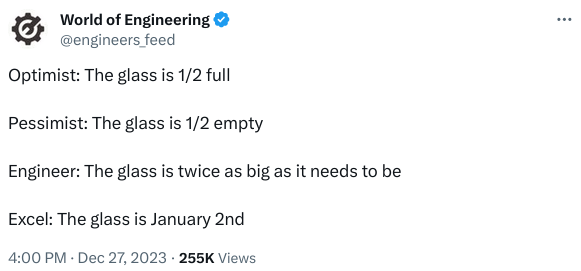I had recently mentioned the similar Oregon case below:
https://www.seattletimes.com/business/traffic-light-crusader-fined-for-doing-math-without-a-license/
Here is another similar report from 2023-02-22.
Note the knob on the touchscreen in a world where saving a dollar per vehicle is a huge thing:
Charged by their village with scavenging food, the boys took the bats home where they were cooked and eaten. There was no way of knowing that the creatures were infected with a pathogen that kills 50 per cent of the people it infects.
Between December 2013 and June 2016, nearly 30,000 people were infected and 11,000 killed across West Africa. Liberia, Sierra Leone and Guinea were hardest hit.
Even today the grim legacy of the epidemic lives on. Sporadic outbreaks have occurred ever since – and experts now believe it is lingering in an unlikely source: the testicles of male survivors.
Thank God we still have some free speech platforms such as x.com rumble.com and theepochtimes.com .
Without the letter (that it appears neither the Post, nor Harvard will release), we are a bit lacking in context, but this sounds odd on Harvard’s part.
Nature, owned by the same German company as “Scientific” “American”, endorses “Degrowth”, “Degrowth can work — here’s how science can help”.
Researchers in ecological economics call for a different approach — degrowth. Wealthy economies should abandon growth of gross domestic product (GDP) as a goal, scale down destructive and unnecessary forms of production to reduce energy and material use, and focus economic activity around securing human needs and well-being. This approach, which has gained traction in recent years, can enable rapid decarbonization and stop ecological breakdown while improving social outcomes. It frees up energy and materials for low- and middle-income countries in which growth might still be needed for development. Degrowth is a purposeful strategy to stabilize economies and achieve social and ecological goals, unlike recession, which is chaotic and socially destabilizing and occurs when growth-dependent economies fail to grow.
⋮
Reduce less-necessary production. This means scaling down destructive sectors such as fossil fuels, mass-produced meat and dairy, fast fashion, advertising, cars and aviation, including private jets. At the same time, there is a need to end the planned obsolescence of products, lengthen their lifespans and reduce the purchasing power of the rich.
⋮
Reduce working time. This could be achieved by lowering the retirement age, encouraging part-time working or adopting a four-day working week. These measures would lower carbon emissions and free people to engage in care and other welfare-improving activities. They would also stabilize employment as less-necessary production declines.
⋮
Governments that issue their own currency can use this power to finance social and ecological objectives. This approach was used to bail out banks after the global financial crisis of 2007–8 and to pay for furlough schemes and hospitals during the COVID-19 pandemic.
⋮
The experiences of countries that have had to adapt to low-growth conditions — such as Cuba after the fall of the Soviet Union, and Japan — also hold lessons.
Indeed!
Addressing the question of how to prosper without growth will require a massive mobilization of researchers in all disciplines, including open-minded economists, social and political scientists, modellers and statisticians. Research on degrowth and ecological economics needs more funding, to increase capacity to address necessary questions. And the agenda needs attention and debate in major economic, environmental and climate forums, such as the United Nations conferences.
So, achieving “degrowth” will require growth—in spending on the “science” promoting it!
A March 2022 editorial in this journal argued that it is time to move beyond a ‘limits to growth’ versus ‘green growth’ debate. We agree. In our view, the question is no longer whether growth will run into limits, but rather how we can enable societies to prosper without growth, to ensure a just and ecological future. Let’s pave the way.
So, this is not some crackpot op-ed: this is the Voice of Establishment Science condemning those who pay its bills to constrained, shrinking, poorer, less free lives—forever.
Lead author:
Hey! Give the German owners credit! They are trying to speak truth to power. ![]()
One wonders what the reaction to this kind of propaganda would be if the owners of “Nature” were Russians or Chinese instead of mere Germans?
Prime vs sub-Prime?
Silly Excel! The glass is 1 February.
What would be the equivalent today what Scientific American was back in its heyday ??? If there isn’t one, this is a huge opportunity for website/magazine. My Brave search revealed Science magazine, and after 5 minutes I found a White House funded ocean CO2 climate change article, and this gem from scientists at University of Texas, Austin " Humanity’s groundwater pumping has altered Earth’s tilt" … https://www.science.org/content/article/humanity-s-groundwater-pumping-has-altered-earth-s-tilt
Science is the official journal of the American Association of the Advancement of Science (AAAS), and is about as establishment a pillar of government-funded Big Science as you can find. Their “front of book” articles (as opposed to the peer-reviewed research papers) are about as left-wing as a dumpster full of university administrators (not a bad idea…) and as predictable as NPR editorials. I cancelled my subscription sometime during the Clinton administration and it’s only declined since then.
Oh, no, we’re all going to fall off.
I’m so old I can remember when they taught actual science


